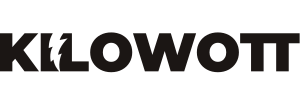In today’s competitive market, having a Scalable Sales Process is not just a nice-to-have; it’s a core component of any successful Go-To-Market (GTM) strategy. Why is this so critical? Ignoring scalability can lead you into a trap of stagnation and inefficiency. Imagine hitting your sales targets but struggling to manage an ever-growing customer base, or worse, faltering when trying to enter new markets. These roadblocks can easily turn into business-ending pitfalls. That’s why this blog is a must-read for anyone involved in building or refining a sales strategy, whether you’re part of a startup, a small-to-medium-sized business, or even an enterprise-level organization. We’ll dive into the nitty-gritty details of what makes a sales process truly scalable, and why this scalability is the linchpin of your GTM plan. So, let’s get started on shaping a sales process that not only works but scales beautifully with your business growth.
What is a GTM Strategy?
A Go-To-Market (GTM) strategy serves as your blueprint for delivering a product or service to consumers. Essentially, it outlines how your business plans to reach its target customers and achieve competitive advantage. Key components of a robust GTM strategy include market segmentation, targeting, positioning, and the marketing mix—comprising product, price, place, and promotion. Additionally, customer engagement strategies and distribution channels fall under this umbrella.
Now, let’s turn our attention to why a Scalable Sales Process is crucial within this framework. A GTM strategy isn’t a “set it and forget it” plan; it’s dynamic. As your business grows, your sales strategy needs to evolve without becoming unwieldy or inefficient. Herein lies the importance of scalability. A Scalable Sales Process allows your sales team to handle increasing volumes without compromising on quality or customer satisfaction. Simply put, it’s a core component that ensures the long-term sustainability and effectiveness of your entire GTM strategy. By integrating a Scalable Sales Process, you’re setting the stage for adaptability, efficiency, and, ultimately, success.
What is a Scalable Sales Process?
A scalable sales process refers to a systematic approach in selling that can efficiently handle an increase in demand or complexity without compromising performance or profitability. Its characteristics include adaptability, repeatability, and predictability. With scalability, a sales process not only thrives in current market conditions but can also flexibly grow with evolving business needs.
Scalability in sales is pivotal. As businesses aim to grow, expand into new markets, or launch innovative products, they need a sales process that can amplify without overburdening resources or diluting the quality of customer interactions.
So, what sets apart a scalable sales process from a regular one? The key difference lies in foresight and flexibility. While a standard sales process might function adequately for today’s needs, a scalable one is designed with tomorrow’s growth in mind, ensuring consistent results regardless of changing market dynamics.
The Pillars of a Scalable Sales Process
In crafting a Scalable Sales Process, there are four pivotal pillars you can’t afford to ignore: Standardization, Automation, Adaptability, and Data-Driven Decisions.
Firstly, standardization is crucial. By creating repeatable and documented processes, you lay the groundwork for scaling. Standardized procedures ensure that everyone on your team is on the same page, reducing errors and streamlining operations.
Next, let’s talk about automation. In today’s fast-paced business environment, automating routine tasks is not a luxury; it’s a necessity. Automation tools help you eliminate time-consuming manual activities, freeing up your team to focus on more strategic tasks that require human ingenuity.
Thirdly, adaptability comes into play. Market conditions are ever-changing. Therefore, a Scalable Sales Process needs to be flexible enough to quickly adapt to new trends, customer behaviors, and competitive pressures. Your process should be agile, with built-in feedback loops to ensure continual improvement.
Finally, make data-driven decisions. Leveraging data analytics helps you make informed choices based on quantifiable metrics rather than gut feeling. This way, you can continually refine your sales strategies for optimum performance.
So, when you’re laying the foundation for your Scalable Sales Process, make sure to solidify these four pillars. They’ll be your guiding principles as you aim for exponential growth and efficiency.
Technology’s Role in Building a Scalable Sales Process
In today’s competitive landscape, technology plays an indispensable role in building a Scalable Sales Process. First and foremost, Customer Relationship Management (CRM) systems serve as the backbone of any scalable operation. These platforms not only organize customer data but also streamline the entire sales funnel, from lead generation to closing deals. Consequently, they free up valuable time for your sales team to focus on what they do best: selling.
Additionally, advancements in Artificial Intelligence and Machine Learning offer unprecedented opportunities for advanced analytics. These technologies can automatically sift through mountains of data to provide actionable insights, helping you fine-tune your sales strategies in real-time. By leveraging AI and machine learning, you can predict customer behaviors, optimize pricing models, and even forecast sales with greater accuracy.
Lastly, for a truly Scalable Sales Process, it’s essential to integrate all your sales tools and platforms. Fragmented systems create bottlenecks and impede growth. Seamless integration ensures that your team can access the information they need when they need it, leading to improved efficiency and scalability.
Incorporating technology is not just an option; it’s a necessity for scalability in today’s fast-paced sales environment.
Training Your Team for Scalability
Creating a culture that fosters scalability is vital for the longevity and success of your sales strategy. To kick-start this transformative process, prioritize training programs that emphasize scalability principles. Workshops and training modules focused on efficiency, adaptability, and data-driven decision-making can equip your sales team with the tools they need to excel in a scalable framework.
Transitioning to ongoing training and development is equally crucial. Unlike one-time training sessions, continuous development ensures that your team is always updated with the latest sales strategies, tools, and technologies. Moreover, it builds a proactive learning environment, where skills are consistently honed and optimized.
Metrics play a pivotal role in making your sales process truly scalable. Establish Key Performance Indicators (KPIs) that reflect scalability, such as sales cycle times, lead conversion rates, and revenue per sales rep. Regularly reviewing these metrics provides actionable insights, allowing you to fine-tune your strategies for even better performance.
By focusing on these three key aspects—culture, training, and metrics—you can set the stage for a robust, scalable sales process that is well-aligned with your overall GTM strategy.
Measuring the Success of Your Scalable Sales Process
Successfully implementing a Scalable Sales Process is only the first step; measuring its effectiveness is equally critical. Start by identifying key performance indicators (KPIs) that align with your sales objectives. Common KPIs include conversion rates, average deal size, and sales cycle length. Monitoring these metrics will give you insights into the performance and scalability of your sales process.
Next, leverage the power of A/B testing to optimize your sales strategies. For instance, you could test different email templates or call scripts to see which one yields higher conversion rates. By doing so, you’re not just relying on intuition; you’re making data-backed decisions that can significantly improve your sales outcomes.
Lastly, the beauty of a Scalable Sales Process lies in its adaptability. Regularly review your KPIs and A/B testing results to iterate your strategies. If something isn’t working as well as you’d hoped, adjust accordingly. Continuous improvement, guided by solid data, is the hallmark of a truly scalable and effective sales process.
Conclusion
In conclusion, building a Scalable Sales Process is not just an added advantage; it’s a necessity for a successful Go-To-Market (GTM) Strategy. We’ve walked you through the defining aspects of a GTM strategy and pinpointed why scalability in sales is non-negotiable. Remember, the pillars of scalability—standardization, automation, adaptability, and data-driven decisions—are crucial in today’s competitive marketplace.
So why is a Scalable Sales Process pivotal? Simply put, it allows your business to grow without proportionately increasing your overhead. It ensures you’re not just running in place but moving forward with strategic purpose and measurable results. As markets evolve and opportunities arise, having a scalable system enables you to pivot swiftly and capitalize on these changes.
Now’s the time to take action. Assess your current sales process, identify bottlenecks, and initiate the steps towards scalability. You’re not just future-proofing your sales efforts; you’re setting the stage for sustainable growth and long-term success.





